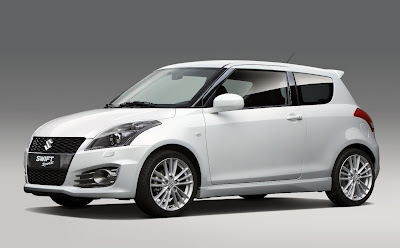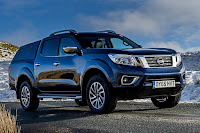Jaguar XFR-S vs. its rivals
The new XFR-S is the fastest, most powerful saloon ever created by Jaguar, thanks to a 5.0 litre supercharged V8 engine that develops 542 bhp (405 kW / 550 PS).
Partnering it is an eight-speed automatic transmission with ‘Quickshift’ functionality, which interrupts torque delivery to speed up the process of selecting a higher gear. On down-changes, it sends a signal to the engine’s electronic brain to blip the throttle.
Along with the powertrain upgrades, the chassis has also received some attention. The XFR-S gets stiffer springs and a revised rear sub frame, which in turn has allowed for some geometry changes. To make the most of the revised set-up, the adaptive dampers, electronic differential and stability control system have all been recalibrated. The specification additionally includes wider 20” forged alloy wheels shod with bespoke Pirelli tyres.
Although modifications to the bodywork certainly give the car a purposeful look, they perform a couple of important functions too. Firstly, there are larger frontal intakes to increase airflow into the engine and, secondly, a carbon fibre front splitter, deeper side sills, a rear diffuser and the boot-lid spoiler have all been designed to help reduce aerodynamic lift.
There’s no doubt that the XFR-S is an alluring package, but how does the Jaguar’s specification compare against two talented German rivals, namely the BMW M5 and the Mercedes-Benz E 63 AMG? Well, judging by the figures, it’s slightly more expensive and less efficient, but performance appears to be on a par:
UK sales of the Jaguar XFR-S begin in May 2013.
Related posts:
2012 J. D. Power Survey
Jaguar XKR-S Convertible
542 bhp Jaguar XKR-S
Partnering it is an eight-speed automatic transmission with ‘Quickshift’ functionality, which interrupts torque delivery to speed up the process of selecting a higher gear. On down-changes, it sends a signal to the engine’s electronic brain to blip the throttle.
+Front+Side+1.jpg) |
| 2013 Jaguar XFR-S. Scroll down for more images. |
Along with the powertrain upgrades, the chassis has also received some attention. The XFR-S gets stiffer springs and a revised rear sub frame, which in turn has allowed for some geometry changes. To make the most of the revised set-up, the adaptive dampers, electronic differential and stability control system have all been recalibrated. The specification additionally includes wider 20” forged alloy wheels shod with bespoke Pirelli tyres.
Although modifications to the bodywork certainly give the car a purposeful look, they perform a couple of important functions too. Firstly, there are larger frontal intakes to increase airflow into the engine and, secondly, a carbon fibre front splitter, deeper side sills, a rear diffuser and the boot-lid spoiler have all been designed to help reduce aerodynamic lift.
There’s no doubt that the XFR-S is an alluring package, but how does the Jaguar’s specification compare against two talented German rivals, namely the BMW M5 and the Mercedes-Benz E 63 AMG? Well, judging by the figures, it’s slightly more expensive and less efficient, but performance appears to be on a par:
| Manufacturer | Jaguar | BMW | Mercedes-Benz |
|---|---|---|---|
| Model | XFR-S | M5 | E 63 AMG |
| UK price | £79,995 | £73,065 | £74,920 |
| Engine | 5.0 V8 | 4.4 V8 | 5.5 V8 |
| Induction | Supercharger | Twin turbo | Twin turbo |
| Power | 542 bhp (405 kW / 550 PS) | 552 bhp (412 kW / 560 PS) | 517 bhp (386 kW / 525 PS) |
| Torque | 680 Nm (502 lb/ft) | 680 Nm (502 lb/ft) | 700 Nm (516 lb/ft) |
| 0-62 mph (100 km/h) | 4.6 secs | 4.3 secs | 4.3 secs |
| Top speed | 186 mph (300 km/h)* | 155 mph (250 km/h)* | 155 mph (250 km/h)* |
| Economy** | 24.4 mpg (11.6 l/100km) | 28.5 mpg (9.9 l/100km) | 28.8 mpg (9.8 l/100km) |
| CO2 | 270 g/km | 232 g/km | 230 g/km |
| * Electronically limited | |||
| ** EU combined cycle | |||
UK sales of the Jaguar XFR-S begin in May 2013.
Related posts:
2012 J. D. Power Survey
Jaguar XKR-S Convertible
542 bhp Jaguar XKR-S

+Interior.jpg)
+Front+Detail.jpg)
+Rear+Side.jpg)
+Wheel+Detail.jpg)
+Front.jpg)
+Front+Side+2.jpg)
+Front+Side.jpg)
+Front+Side+1.jpg)

%2BFront%2BSide.jpg)



Comments
Post a Comment